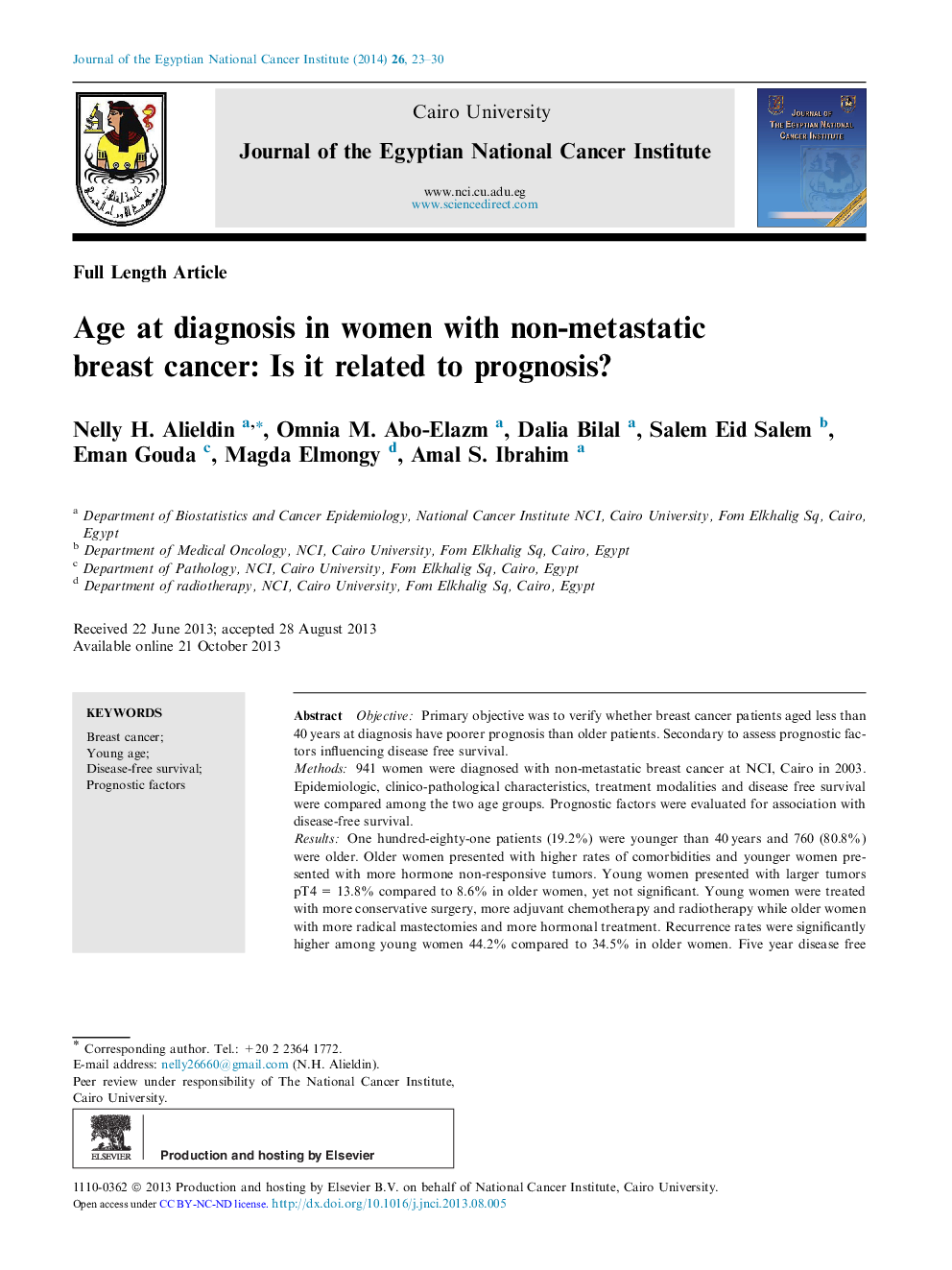| Article ID | Journal | Published Year | Pages | File Type |
|---|---|---|---|---|
| 3989060 | Journal of the Egyptian National Cancer Institute | 2014 | 8 Pages |
ObjectivePrimary objective was to verify whether breast cancer patients aged less than 40 years at diagnosis have poorer prognosis than older patients. Secondary to assess prognostic factors influencing disease free survival.Methods941 women were diagnosed with non-metastatic breast cancer at NCI, Cairo in 2003. Epidemiologic, clinico-pathological characteristics, treatment modalities and disease free survival were compared among the two age groups. Prognostic factors were evaluated for association with disease-free survival.ResultsOne hundred-eighty-one patients (19.2%) were younger than 40 years and 760 (80.8%) were older. Older women presented with higher rates of comorbidities and younger women presented with more hormone non-responsive tumors. Young women presented with larger tumors pT4 = 13.8% compared to 8.6% in older women, yet not significant. Young women were treated with more conservative surgery, more adjuvant chemotherapy and radiotherapy while older women with more radical mastectomies and more hormonal treatment. Recurrence rates were significantly higher among young women 44.2% compared to 34.5% in older women. Five year disease free survival in young women was 38.9% ± 4.6% compared to 48.6% ± 2.5% with adjusted hazard ratio of 1.22 95% CI (0.91–1.64), p = 0.19. Multivariate analyses identified positive axillary lymph nodes (pN2-pN3), larger tumor size (pT3-pT4), hypertension, lobular carcinoma type and lack of adjuvant systemic treatment as independent factors associated with poor DFS.ConclusionYoung women were not found to have poorer prognosis, yet they presented with more ER negative tumors. Most of women presented with advanced stage and young women had higher recurrence rates.
